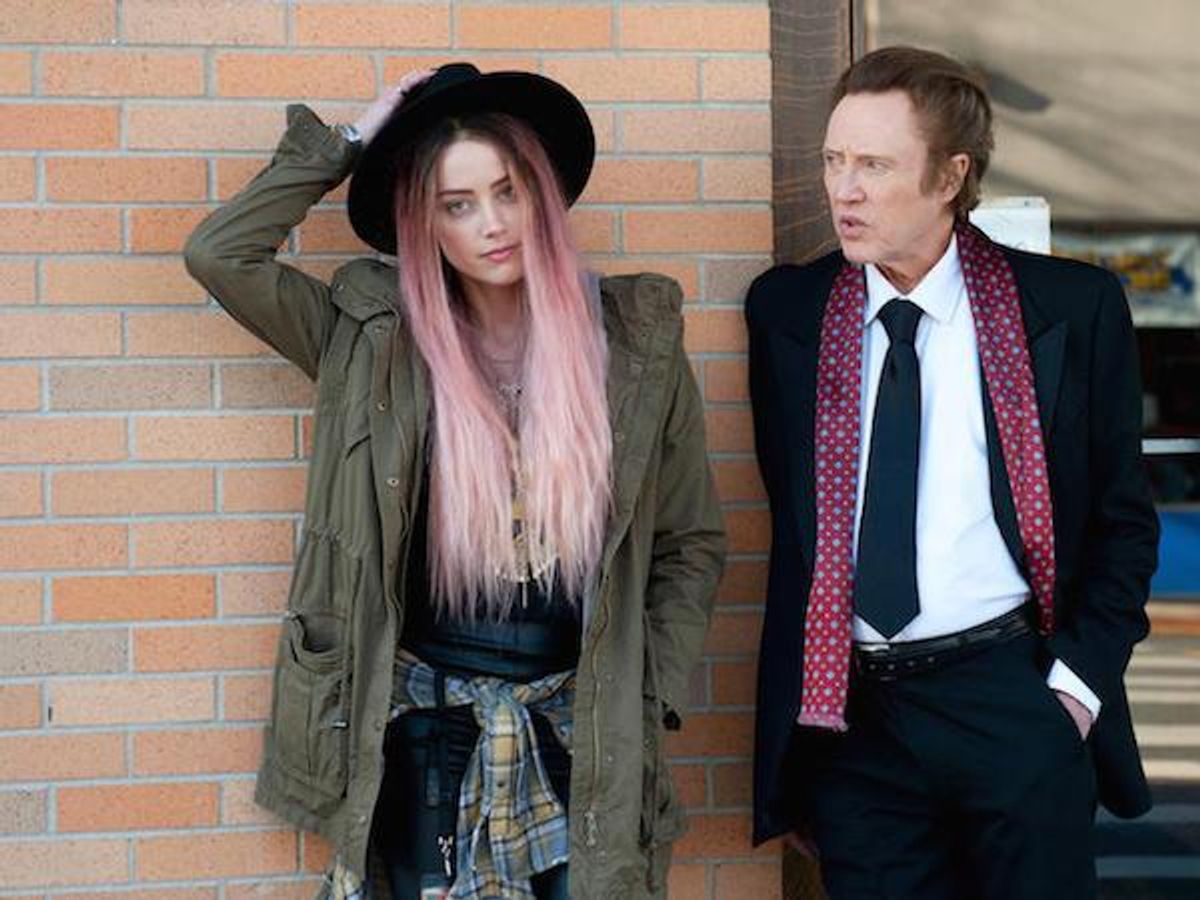
The bisexual actress (and wife of Johnny Depp) is happy to be pushing back at the sexualized image of women in Hollywood — and starring alongside Eddie Redmayne in The Danish Girl.
April 24 2015 10:00 AM EST
April 24 2015 10:14 AM EST
By continuing to use our site, you agree to our Private Policy and Terms of Use.

The bisexual actress (and wife of Johnny Depp) is happy to be pushing back at the sexualized image of women in Hollywood — and starring alongside Eddie Redmayne in The Danish Girl.
Photo: Amber Heard and Christopher Walken in 'When I Live My Life Over Again'
From Friday Night Lights to Zombieland, to a short-lived stint as a Playboy bunny on primetime, Amber Heard is used to filling the role of a cliched Hollywood beauty (and next up, she'll be in Magic Mike XXL). But after more than a decade in the industry, making little tweaks to her characters along the way in an attempt to give them more depth, Heard is attempting to break the two-caste system of women in film. In a recent interview with Indiewire, she talked about only being seen as "sexy" or "not" in the industry, her upcoming projects, and being a member of the LGBT community.
1. On being part of two films that are showing at the Tribeca Film Festival: When I Live My Life Over Again and The Adderall Diaries:
"It's so gratifying to have both of them at Tribeca. It's an interesting outlet for them to be seen in because I think Tribeca doesn't feel commercialized. It doesn't feel like a giant and feels more focused on film. That's not to say the other [festivals] aren't, but it's a little more intimate and a little more focus on the film."
2. On how difficult it is to find female roles in Hollywood that aren't defined by their sexuality:
"I haven't run away from it, but I've sought to do more with them and sought to do more with ones that weren't like that at all. The frustrating thing is I finally get to do a movie where I'm a person--a flawed, vulnerable complex character that has a full range of traits, experiences, reactions, emotional reactions and it doesn't matter how she looks... I should not have to choose to be taken seriously or to be beautiful. I finally get to do a role without any of that shit, it's about a character and her issues and her problems and her journey."
3. On her upcoming role alongside Eddie Redmayne in The Danish Girl:
"I play Oola Paulson and she's a ballet dancer in 1920's Copenhagen. The creative undercurrent is running through that area of the world. It's such a beautiful time. She's a ballet dancer, close with the couple played by Eddie Redmayne and Alicia Vikander. Oola is their flamboyant, fun-loving friend who allows Eddie's character to be seen from the perspective he wants, she allows him to become who he wants to become in a way that is driven by the heart. She's completely non-judgmental and leads with her heart and helps Eddie to fully realize who he needs to become with love and support and ease."
4. Why she was drawn to the project, which is about the first person to undergo gender reassignment surgery:
"I have this amazing cast and this era that I'm incredible fascinated by. I love art, I love the surrealism, especially. So this era is compelling to me. All of these things combined. And it's story about heart and love between two people and identity as well and it just so happens to be also an LGBT issue. It's a story surrounding some of the intimate issues within the LBGT community. Discrimination, identity, family relationships love, all these things within the context of a society."
5. On identifying as bisexual and being a part of an LGBT-centric project, the community overall, and what that means to her:
"I'm obviously a major advocate for equality and as a member of the LGBT community I am honored to be able to be part of a story that represents a part of that struggle and that life. It's an issue facing so many people today. And as a socio-sexual experiment, it's fascinating that we get to talk about previously conceived notions of gender. What fascinates me is it can be part of the conversation because of technology -- and when I say technology I mean in the medical field as well. This is a relatively new possibility to change gender. So it opens up a whole new conversation that's fascinating to me about what it is to be male or female or to live in a world with a two party system. It's fascinating. And we're now starting to be able to separate gender identity from sexual preference and with the growing acceptance of sexual fluidity and the growing possibility of gender fluidity."
Read the full Indiewire article here.